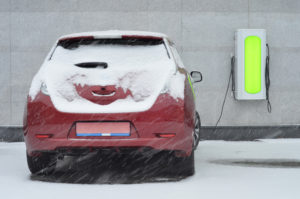
In 2010, Nissan took a big leap of faith into the electric vehicle market, spending billions on designing and building battery-powered cars. It didn’t turn out as planned, and now the company is wary of projections of growth for the electric vehicle market. Sean McLain reports in The Wall Street Journal:
TOKYO— Nissan Motor Co. was once the world’s loudest proponent of electric cars, but these days it is one of the more sober voices.
On Monday, the Japanese car maker said it would spend about $17.5 billion on 20 new battery-powered models, aiming to have half its sales come from electric cars or hybrids by 2030.
Other car makers have set similar or more ambitious targets. Ford Motor Co. has said 40% of its sales in 2030 would be from fully electric vehicles.
Nissan NSANY -5.10% knows better than most how hard it is to predict electric-vehicle sales, said Chief Operating Officer Ashwani Gupta.
The car maker started selling its Leaf electric hatchback in 2010, and the next year, then-Chief Executive Carlos Ghosn said that Nissan and its alliance partner, Renault SA, RNO -1.56% would sell a cumulative 1.5 million electric vehicles by 2016. They fell far short of the target. The Leaf’s short range and the lack of a widespread charging network meant few consumers were ready for a car that couldn’t be filled up at a gas station.
Fast forward a decade, and Nissan is more optimistic that people are ready for an EV. Still, it says conditions are too uncertain in two of its biggest markets, the U.S. and Japan, to make any solid predictions. It isn’t saying what proportion of vehicle sales in 2030 will come from purely electric vehicles as opposed to hybrids that still have a gasoline tank.
“It’s not conservative. It’s sensible. It’s grounded,” said Mr. Gupta in an interview. “After what all happened, we are sensible, and our message has to be credible,” he said.
The plan didn’t boost Nissan’s share price in a market concerned about the new Covid-19 virus variant. Nissan shares fell 5.6% in Tokyo trading Monday.
Partly hedging its bets, the company is designing factories so that it can build both hybrids and EVs on the same production line. That means lines won’t sit half-used as they did when Nissan built up capacity for the Leaf that never materialized.
Read more here.



